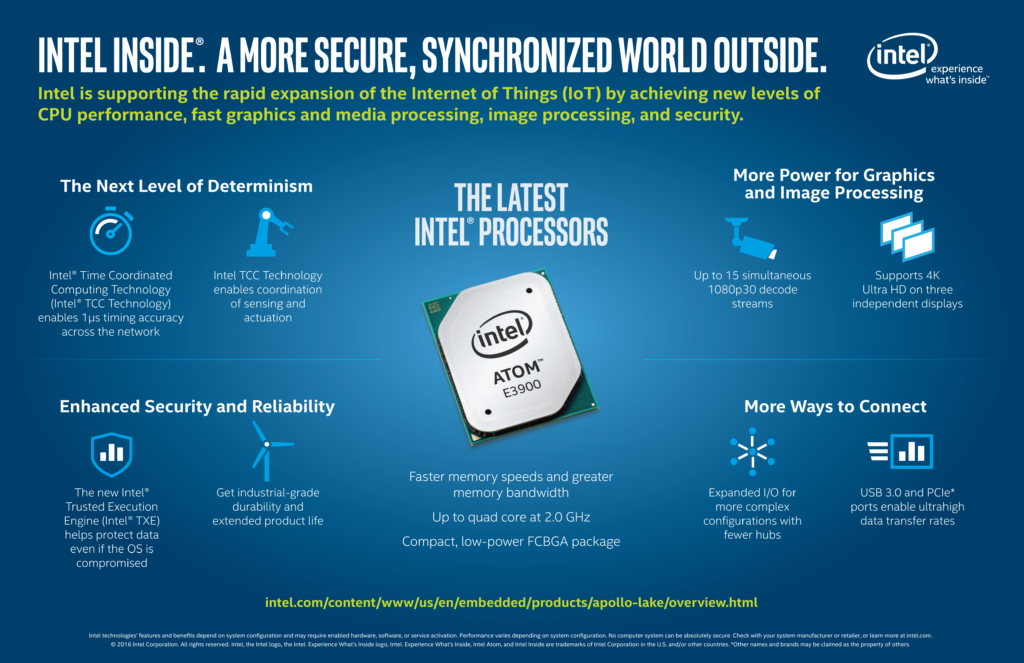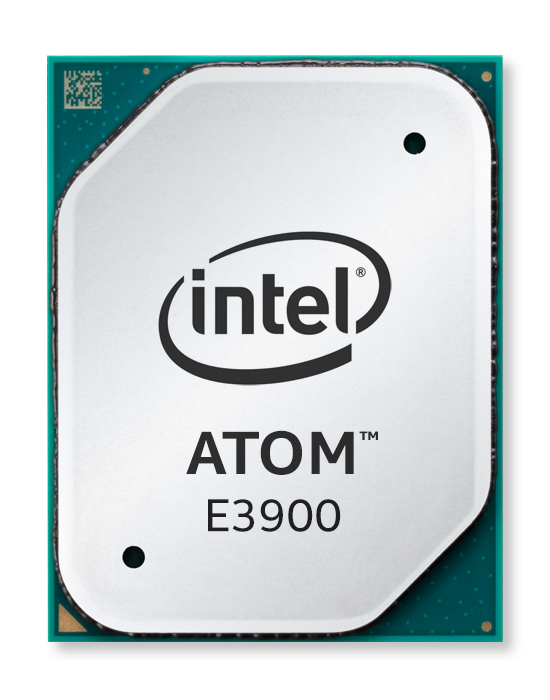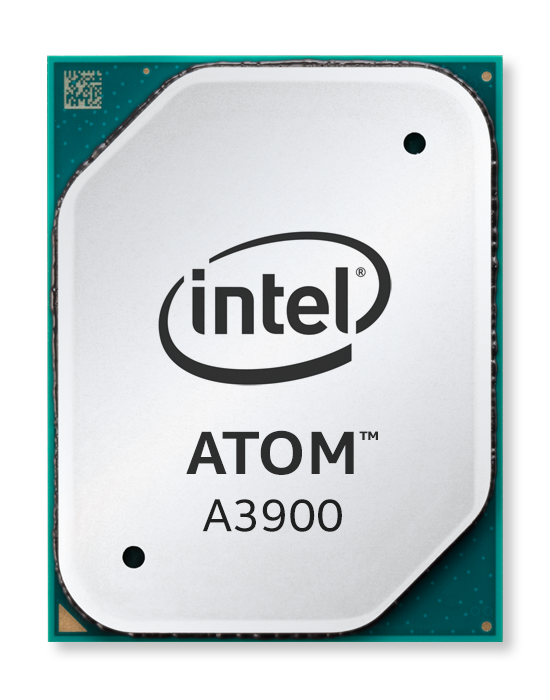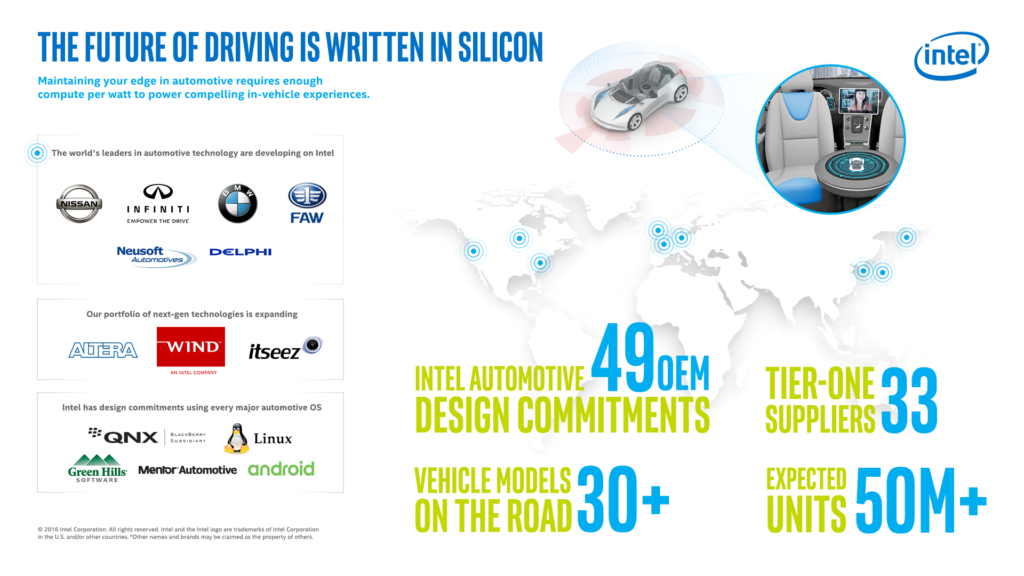Intel will seriously invest in the Internet of Things (IoT) devices by delivering two new processors lines – the E3900 and A3900 series.

Intel Gets Serious About IoT
Intel has been working on providing solutions for IoT manufacturers for a few years now. However the company has faced serious competition in the likes of other companies like Qualcomm. The consumer segment shift to smart devices and IoT appliances has caused Intel to rethink their strategy and invest more development power into these product types as well.
The company unveiled two new Atom processor lines that are specifically built for these markets –The E3900 and A3900 families. Read more about the two series below.
The E3900 Series

The E3900 will benefit the IoT industry as these processors have four cores running up to 2.5 GHz that have capability to manage graphics output on three screens at once. The engineers have created the chips to be 1.7 times faster than previous generations. They are built with 14 nanometer silicon technology providing fast and reliable performance.
Intel is actively collaborating with leading IoT device and equipment manufacturers, software vendors and OEM providers such as Delphi, FAW and Neusoft to integrate their products into various products and appliances. Sample use of these processors include in the industrial segment (for critical infrastructure devices) and digital security (surveillance and vision systems that depend on intensive visual data identification and analysis). Three variants are going to be released:
- Intel® Atom™ x5-E3930 processor
- Intel® Atom™ x5-E3940 processor
- Intel® Atom™ x7-E3950 processor
Intel are going to release the first batches in the second quarter of 2017.
The A3900 Series

The A3900 series processors are designed to be used in the in-vehicle entertainment and control systems that are integrated in contemporary automobiles. The automotive series will enable manufacturers to create complete software defined cockpit solutions that include advanced in-vehicle-infotainment systems (IVI), digital instrument clusters and driver assistance systems (ADAS) while relying on a single SoC. These processors will be available in the first quarter of 2017.

So What Does This Mean for IoT
The end results of Intel’s new processors means that more manufacturers and vendors will have access to the new technology. To stay competitive Intel will probably offer low prices which will boost the number of devices that are going to be offered to the customers – both individuals and big businesses.
What is more interesting about Intel’s decision is that the company will offer a separate processor series for smart cars. This shows that the company strongly believes that these technologies are going to evolve much further than what we can imagine today.
The Internet of Things (IoT) will certainly grow with an exponential rate and all analysts agree that is going to be the “next great thing”, as we already see the enormous prospects of the connected technologies. Security-wise this also brings great fears as the IoT market segment is one of the most targeted and, unfortunately, one of the most targeted. Just look at what Mirai has done. We suspect that the next big waves are going to unleash even more damage. And if Intel delivers a good enough product that proves to be popular among manufacturers and vendors, then the hackers will have an even bigger incentive to target the IoT segment. Time will tell what will happen.



